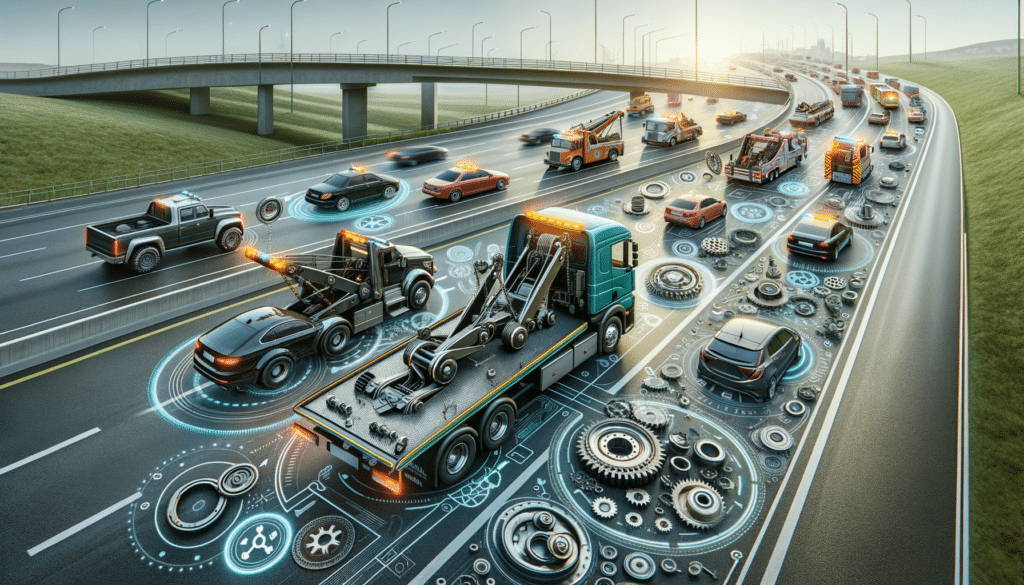The Role of Tow Trucks in Roadside Assistance
Tow trucks are indispensable in the world of roadside assistance, acting as a lifeline for drivers in distress. Whether it’s a flat tire, engine failure, or an unfortunate accident, tow trucks ensure that vehicles are safely transported to a repair facility or a safer location. Their importance is magnified in urban areas where traffic congestion can turn minor vehicle issues into major disruptions. Tow trucks are equipped with specialized tools and operated by trained professionals who can handle a variety of situations with efficiency and care.
Tow trucks are not just about moving vehicles; they also provide a sense of security. For many drivers, knowing that help is just a call away offers peace of mind, especially during long journeys or in unfamiliar territories. The presence of tow trucks on the road also helps maintain traffic flow, as they quickly remove disabled vehicles from busy lanes, reducing the risk of further accidents.
• Tow trucks help in maintaining traffic flow by quickly removing disabled vehicles from busy lanes.
• They provide a sense of security to drivers, knowing that assistance is readily available.
Types of Tow Trucks and Their Specific Uses
There are several types of tow trucks, each designed for specific scenarios. The most common types include flatbed tow trucks, hook and chain tow trucks, wheel-lift tow trucks, and integrated tow trucks. Each type has distinct features and is suited for different towing needs.
Flatbed tow trucks are perhaps the most versatile, capable of transporting a wide range of vehicles, including motorcycles and luxury cars, without causing damage. The vehicle is secured on a flat platform, ensuring stability and safety during transit. Hook and chain tow trucks, on the other hand, are more traditional and typically used for wrecked vehicles that cannot be driven. They use chains to lift the vehicle by its axle, which can cause damage if not handled properly.
Wheel-lift tow trucks are a modern adaptation of the hook and chain design, using a metal yoke instead of chains. This method is less likely to damage the vehicle and is commonly used for short-distance towing. Integrated tow trucks are equipped with additional axles and are often used for heavy-duty vehicles such as buses and large trucks.
• Flatbed tow trucks are versatile and safe for transporting various vehicles.
• Hook and chain tow trucks are suitable for towing wrecked vehicles.
Choosing the Right Tow Truck Service
Selecting the appropriate tow truck service is crucial for ensuring the safety and care of your vehicle. When choosing a service, consider factors such as the type of vehicle, the nature of the issue, and the distance to be covered. It’s also important to verify the credentials of the towing company, ensuring they have the necessary licenses and insurance.
Many towing companies offer additional services such as roadside assistance, which can include jump-starts, tire changes, and fuel delivery. These services can be invaluable in getting you back on the road without the need for a full tow. Additionally, some companies offer 24/7 service, which is essential for emergencies that occur outside of regular business hours.
• Verify the towing company’s credentials, including licenses and insurance.
• Consider additional services offered, such as roadside assistance and 24/7 availability.
Innovations in Tow Truck Technology
The tow truck industry is continually evolving, with new technologies enhancing the efficiency and safety of towing services. Modern tow trucks are equipped with advanced GPS systems, allowing operators to reach stranded vehicles quickly and accurately. This technology not only improves response times but also enhances communication between the towing service and the customer, providing updates on arrival times and service details.
Another significant innovation is the use of hydraulic systems in tow trucks, which allows for smoother and more precise vehicle loading and unloading. This is particularly beneficial for towing luxury vehicles that require careful handling. Additionally, some tow trucks are now equipped with cameras and sensors, providing operators with better visibility and control during the towing process.
• GPS systems enhance response times and communication with customers.
• Hydraulic systems allow for smoother vehicle loading and unloading.
The Economic Impact of Tow Truck Services
Tow truck services play a vital role in the economy, supporting a wide range of industries beyond just roadside assistance. They are crucial for the automotive repair industry, as they transport vehicles to repair shops, ensuring a steady flow of business. Additionally, tow trucks are instrumental in the logistics and transportation sectors, moving vehicles between locations efficiently.
The demand for tow truck services is also a driver of job creation, offering employment opportunities for drivers, dispatchers, and technicians. Furthermore, the industry contributes to local economies through the purchase of vehicles, equipment, and maintenance services. As the automotive industry continues to grow, the need for reliable tow truck services is expected to increase, further boosting economic activity.
• Tow truck services support the automotive repair and logistics industries.
• They contribute to job creation and local economies.





